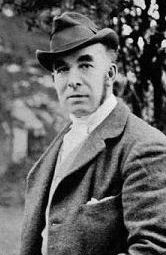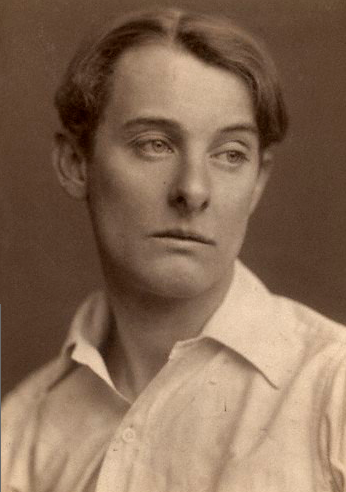Ever
since listening to “The Real Trial Of Oscar Wilde” on Radio Four
a couple of week ago, I've been pondering the tragic downfall of this
theatrical genius.
At
the height of his career, Oscar Wilde was found guilty of gross
indecency and imprisoned for two years. He was subjected to a harsh
regime of ' hard labour, hard fare and hard bed' which left
him mentally and physically exhausted. He was forced to flee to Paris
after his release and he died at the age of 46 with his reputation in
shatters, his health destroyed and his fortune depleted.
 |
| Oscar Wilde |
Wilde,
of course, was a homosexual and homosexuality wasn't decriminalised
in the UK until 1967. But the late Victorian period wasn't nearly as
prudish as popular culture would make us believe. There was a very
active gay scene in London at the time and Wilde's sexual orientation
was something of an open secret amongst the theatrical community.
Wilde made very little attempt at disguising his relationship with
the young Lord Alfred Douglas (aka Bosie) and everyone knew that the
two were more than just good friends. Wilde's
incarceration was not the result of a puritan society frowning on his
immoral activities (the Victorians were generally not concerned with
what went on between consenting adults, so long as it happened in private) Wilde was
incarcerated because, much like Vicky Pryce in recent years, he used
the law to get satisfaction in his own private vendetta. And lost.
There
were two trials which led to his downfall. The first one was
instigated by Wilde himself after the Marquess of Queensberry
(Bosie's father) left his calling card at his club accusing him of
being a sodomite. Wilde became indignant and accused Queensberry of
libel.
This
was an extraordinarily foolhardy thing to do considering both he and
Bosie had been very open and reckless in their dealings with rent
boys and homosexual brothels. The onus was now on Queensberry to
prove that Wilde was a depraved older man who habitually enticed
naive youths into a life of vicious homosexuality.
 |
| The Marquess Of Queensberry |
Wilde
was smugly confident at first that he could outwit Queensberry's
lawyers with his eloquence. He viewed the whole trial as a game of
words which he was sure to win – after all, although Wilde readily
admitted to consorting with young men of low class, it was almost
impossible in an age before the ubiquitous presence of cameras to
prove that any homosexual activity had actually taken place. Wilde
relied heavily in endearing himself to the court by resorting to
humour and witty retorts and exposing Queensberry for the pompous and
blundering old fool that he was. But it was exactly this flippancy
which led to his downfall. When Wilde was asked whether he had ever
kissed a certain servant boy, Wilde responded, "Oh,
dear no. He was a particularly plain boy – unfortunately ugly – I
pitied him for it."
When he was then asked why
the boy's ugliness was relevant, Wilde hesitated and for the first
time became flustered: "You
sting me and insult me and try to unnerve me,”
he said, “and
at times one says things flippantly when one ought to speak more
seriously.”
It
didn't take long after that for Queensberry to assemble enough
evidence to prove his accusation. His lawyers paid rent boys to secure their damming testimonies and Wilde was soon
forced to drop the case. He was now faced with debilitating legal
charges and, having so publicly incriminated himself, the authorities
had no option but to arrest him for gross indecency. This led to the
second trial and eventually to his own destruction.
So
why did this play affect me so? Well, it was Wilde's foolhardy
decision to prosecute Queensberry which intrigues me. What was he
thinking? What was behind this self destructive streak? Well, the fact is that Wilde was being used by Bosie to get back at his father. Bosie had a very troubled relationship with
Queensberry, whom he despised. Whereas Bosie was sensitive and
artistic, Queensberry was a bully and a brute and was more interested
in the art of fighting than in his son's poetry (This is the same
Queensberry who composed the famous boxing rules). Queensberry
looked down on his son. He considered him a sissy and a weakling and
never ceased tormenting him. He was fiercely opposed to Bosie's
relationship with Wilde and was dead set on separating the two. In
fact he had a bee in his bonnet about older men trying to corrupt his
sons. He had already accused Rosebery, the liberal statesman and
future prime minister, of having a homosexual affair with his elder
son Francis who worked for him as his private secretary. Francis died
in a suspicious hunting accident, which some believe may have been a
suicide resulting from his father's threats to expose him. Bosie was
deeply affected by his brother's death and as far as Wilde was
concerned, this was the last straw. Encouraged by Bosie, Wilde took
Queensberry to court in an attempt to put to an end his incessant
bullying, but as we have seen, it all backfired in the most tragic
fashion.
 |
| Lord Alfred Douglas (aka Bosie) |
The
trials of Oscar Wilde were a great sensation at the time and many
films, books and plays have been written about it, all of which try to illuminate what was really going on in Wilde's mind when he embarked on this spectacular feat of self
destruction. Was he a fool for love? A martyr for the gay cause? A
shameless attention seeker?
A certain phrase I once stumbled upon while reading Robinson Crusoe came to mind as I listened to the play. It is a phrase which intrigues me and which has subsequently become the underlying sentiment in my forthcoming novel “The Ornamental Hermit”:
A certain phrase I once stumbled upon while reading Robinson Crusoe came to mind as I listened to the play. It is a phrase which intrigues me and which has subsequently become the underlying sentiment in my forthcoming novel “The Ornamental Hermit”:
‘It is a secret overruling decree that hurries us on to be the instruments of our own destruction. Even though it be before us we rush upon it with our eyes wide open’.